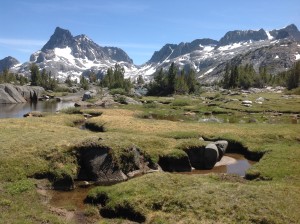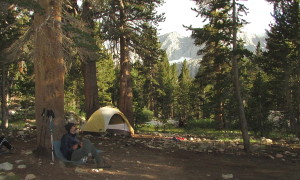A wolf has appeared in Central California for the first time in a hundred years. He left a pack in Oregon, wandered 500 miles south, passed Yosemite and ended up in the Central Valley. The scientists tracking him are keeping his location a secret. But apparently, he is somewhere out in the fields of Fresno county.
This is a great story about the resilience of nature and the conflict between the wild and the domesticated. Wolves once roamed across this region, as did the grizzly bear, who adorns our state flag. Coyotes and condors, bears and wolves figured prominently in native Californian myths.
The last California wolf was killed in 1924, about the same time that the California grizzly was exterminated. But wild nature has a way of pushing back. Civilization won’t last forever. On the borderlands, wild critters are waiting to return. Civilization is a man-made raft floating on a wild sea.
Wolves touch a primal reservoir of meaning. Civilization revolves around the ambivalence of the canine—which reflects our own dual nature. Dogs and wolves are symbolic brothers, whose difference marks the border between domestication and wildness.
The civilizing urge struggles against the wilderness. Real wolves are killed by hunters and farmers. Education domesticates the wolf within.
Plato described education as taming the inner beast. Aristotle extended this in his account of beastly humans and barbarians. Colonialism and slavery can be traced back to Aristotle’s idea that civilized humans were entitled to hunt and enslave the beastly other.
The wolf often shows up in European culture, as a symbol of the wilderness on the edge of civilization. Consider an image from Euripides drama, The Bacchae, which is a play about the wild other. In the play, the female worshippers of Dionysus nurse wolf cubs with their own mother’s milk.
The Greek god Apollo was known to manifest himself as a wolf. Homer called Apollo “the wolf-born god.” Legends held that Apollo was himself nursed by a wolf. A similar tale is told about Romulus and Remus, the mythic founders of Rome, who were suckled by a mother wolf.
These stories point toward the mysterious emergence of civilization from out of the wild. There is only a subtle difference between the wild, unruly wolf and the loyal, domesticated dog.
The wolf-dog divide is found in Plato’s Republic. Plato described the guardians and philosopher-kings of his ideal city as faithful watchdogs. They are loyal to friends, fierce toward foes, and curious about sniffing out the truth. But Plato warns that watch-dogs can turn feral and run amok. We need to guard the guard-dogs (as I discussed in a recent column).
Plato described tyrant as wild beasts. He said that tyrants have a taste for human flesh. The tyrant is “transformed from a man into a wolf.”
This Platonic metaphor resonates through the history of European culture. The Bible warns of wolves in sheep’s clothing (Matthew 7:15). Political philosophers worry that “man is a wolf to man” (homo homini lupus est), as Hobbes did in his argument against “the state of nature.” Wolves and werewolves haunt us in horror films and fairytales.
But does this focus on domestication cause us to overreact? What do we miss when there are no wolves, when everything is domesticated—even our souls?
I love dogs. But in their domesticated cuteness, they lack the edge of ferocity and power that makes the wolf, the grizzly, and the mountain lion so inspiring. What do we lack when we stay home with the dogs instead of running with the wolves?
There is something unsettling about the presence of a wolf in Central California. This demands that we think the limits of domestication. What was lost as civilization wrested the land from its native inhabitants? And what might the future hold?
We are not the masters of the earth we suppose ourselves to be. This land once belonged to bears, wolves, and lions. The rivers held salmon. Great flocks of birds crowded the wetlands. People lived here, long before European culture arrived. One wonders how long our concrete cities and cultivated fields will last.
How long will it take for wild things to return? And what are we missing when no longer hear the howl of the wolf?



